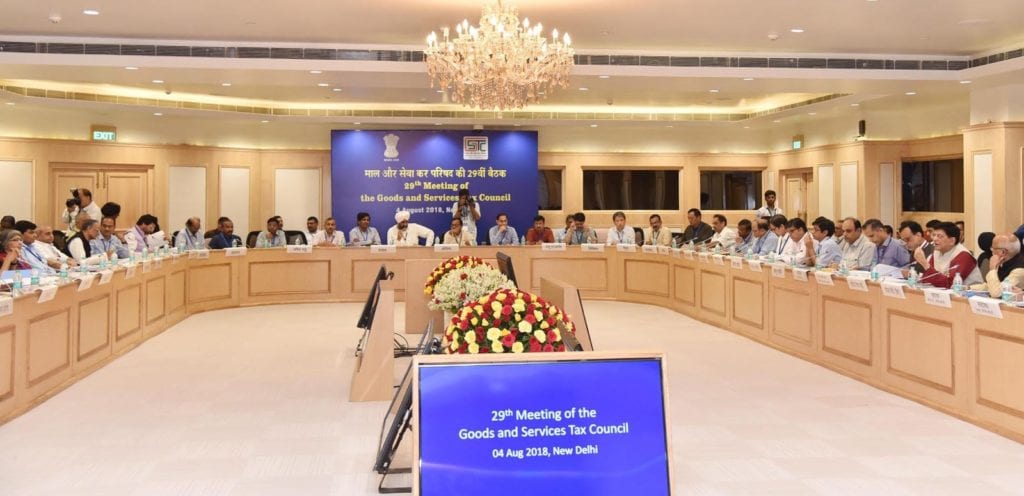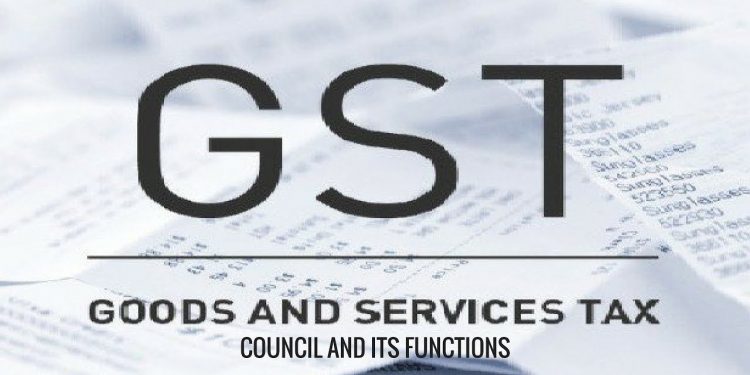The Goods and Services Tax Council is a Constitutional Body. The Council will make & implement policies related to GST, including but not limited to exemptions & tax credits. The central government set up the Council in September 2016.
Union Finance Minister is the ex-officio Chairperson of the GST Council. The Council also includes the Union Minister of State for Finance. One member from each state is a member of the Council.
The GSTC recommends but does not enforce its decisions. However, it expects that central & state governments will follow its recommendations. In the event of any dispute regarding GST implementation, the Council will step in to ease out things.
A meeting of the GST Council will be valid only when at least 50 percent of the total number of members is present. At least 75% of the members present must support each decision that the Council takes.
Duties of the Council
The Council must ensure the smooth implementation of the GST structure across the country. It also has to make recommendations and hold meetings.
Recommendations
Article 279A (4) has laid down provisions regarding recommendations, which the GST Council must make to the central and state governments. The Council will determine which goods and services would come under the purview of GST and which won’t. The GST Council also creates laws about the place of supply, threshold limits, the applicable GST rates on various goods and services, and provisions for special rates of GST applicable during exigencies.
GST Council meetings
The GST Council has another vital item on its agenda – to conduct regular meetings to discuss how to make more business-friendly rules. To date, the Council has met 37 times, the most recent one being in September 2019. In this meeting, the Council extended the last date to file the GSTR – 1. The Council also set up committees to screen anti-profiteering. Through these committees, the Council wants to make the National Anti-Profiteering Authority more robust under GST laws.

The GST Council also took some more important decisions, as listed below:
- The threshold limit to obtain GST exemption would be INR 40 lakhs for all Indian States, except the ones under special category.
- For special category States, the threshold limit to obtain GST exemption would be INR 10 lakhs
- For cases under composition scheme, the threshold limit to obtain GST exemption would be INR 1.5 cr for all states except for the North Eastern States and Himachal Pradesh, where the threshold limit is INR 50 lakhs
- Business dealing in tobacco, pan masala, ice cream, and other types of edible ice can’t claim composition levy. In the event of restaurant services, however, these goods will attract composition levy.
In August 2018, the Finance Minister introduced the Central GST (Amendment) Act, 2018. This Act brought about some changes in the Central Goods and Services Tax Act, 2017. Some of the important amendments are as below:
- Businesses will now include “services which a race club provides through totalisator or a license to a bookmaker in such a club.”
- Service will now include “facilitation or arrangement of transactions in securities.
- The Central Government can notify specific registered persons to pay the tax on reverse charge for supplies of particular types of goods or services or both from unregistered suppliers.
- The upper limit of composition levy has gone up from Rs one crore to Rs one crore and fifty lakh. Composition dealers can now supply services whose value does not exceed 10% of the previous year’s turnover in a State/Union territory or Rs. 5 lakhs, whichever is higher.
- Exemption limit on registration in special category states is now Rs 20 lakhs, up from Rs 10 lakhs under the Central GST (Amendment) Act, 2018.
- A business person who operates out of several locations in a state or union territory can now register his/her business separately in each location.
- A business person who has a business unit in a Special Economic Zone (SEZ) needs to apply for separate registration. This registration will be different from the one he/she has done in the business unit outside the SEZ.
After the government implemented the Central GST (Amendment) Act, 2018, the GST Council has had 8 more meetings, the most recent being the 37th, in September 2019. The Council deliberated on several aspects, like annual return filing, composition scheme changes, new exemptions under GST, etc. Some critical decisions are as below:
- Composition taxpayers can enjoy a waiver of GSTR-9A for FY 2017-18 & 2018-19. There is a possibility that the Council will suggest doing away with this requirement, as the GSTR-4 form, in a changed format, will incorporate an annual declaration of turnover details.
- Businesses whose turnover is less than Rs 2 crores in FY 2017-18 or FY 2018-19, need not compulsorily file GSTR-9.
- The GST Council has recommended restricting the Input Tax Credit (ITC) claim. It has done this to ensure that taxpayers should file a statement of outward supplies in proper time. If taxpayers fail to do this, their claims will be withheld.
- The Council has deferred the time limit to implement the new GST return system to April 2023. This will take care of operational hassles related to mid-year implementation.
- Export freight by both sea & air can enjoy GST exemption for one more year till September 2023.
- The Council has made Aadhar compulsory for taxpayers to register under GST, and also for claiming a refund.
- The Council has exempted storage services for cereals, pulses, vegetables, spices, sugarcane, copra, unmanufactured tobacco, betel leaves, rice, coffee, tea, among other items, from GST.
To conclude, the GST Council is proactive in the continuous fine-tuning of the GST structure to make it more business-friendly and ensure higher compliance. It is encouraging businesses to provide regular feedback & suggestions so that it can achieve the objective of a simple & unified tax structure.




